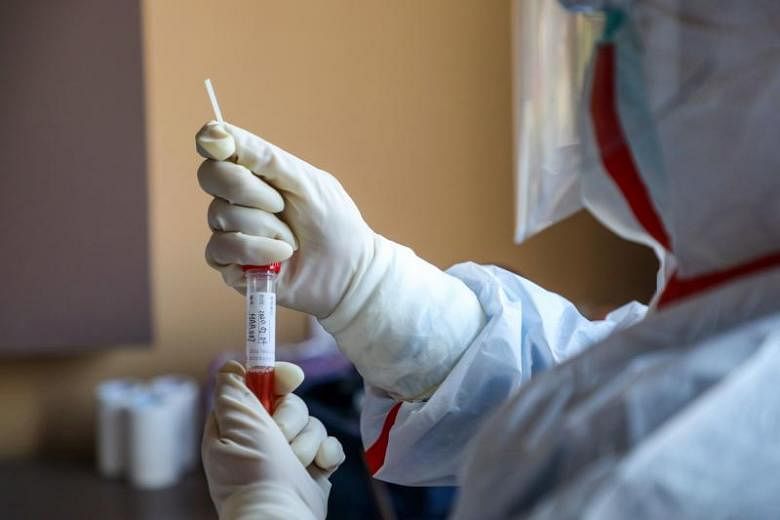BEIJING (BLOOMBERG) - Chinese researchers have applied for a local patent on an experimental Gilead Sciences drug that they believe might fight the novel coronavirus.
The Wuhan Institute of Virology - based in the central Chinese city at the epicentre of the epidemic - has applied for a patent in China for the use of the antiviral drug, known as remdesivir, in treating the ailment. The application was made on Jan 21 along with a military academy, according to a Feb 4 statement on the institute's website.
The move is a sign that China wants more say over a drug it deems as one of the most promising candidates against the infection that has killed almost 500 people. The decision to seek a patent, instead of invoking the heavy-handed "compulsory licence" option that lets nations override drug patents in national emergencies, underscores the delicate balancing act before China as it signals commitment towards intellectual property rights alongside curbing the virus outbreak.
"The fact that they have applied for a patent means there's growing awareness about this in the country," said Mr Wang Yanyu, a senior partner at AllBright Law Offices in Beijing. "The government is compelled to avoid using the compulsory licence because it has been making efforts to show China respects intellectual property rights and the abuse of compulsory licensing will draw international criticism."
It is not clear if or when China's intellectual property authorities will approve the institute's application. The patent filing will need to prove that the drug works on this coronavirus strain, 2019-nCoV, in a way that is different from how it works on other viruses in the same category.
Filing of the patent application by a stakeholder in China, however, makes sense, according to Mr Wang. "Most of the patients are here, rather than in the US, which makes it unlikely that Gilead will do all these tests," he said.
While Gilead's experimental drug is not licensed or approved anywhere in the world, it is being rushed into human trials in China on coronavirus patients after showing early signs of being highly effective. It may go into clinical trials in China as early as next week in patients with moderate and severe symptoms of the novel pathogen, said Dr Merdad Parsey, Gilead's chief medical officer.
Chinese scientists have found Gilead's remdesivir, and chloroquine, an 80-year-old malaria drug, "highly effective" in laboratory studies at thwarting the novel coronavirus, they said on Tuesday in a paper in the journal Cell Research. The two drugs' efficacy on humans required further clinical tests, the institute said in the statement.
China is capable of manufacturing chloroquine and now wants access to remdesivir.
If this patent is granted, Gilead will have to negotiate with Chinese patent owners when it wants to sell the drug for treating the novel coronavirus infection outside China.
"The good thing in having a patent is that it would lead to cross-licensing situations that give China more bargaining chips in negotiating the licensing fee with Gilead," said Mr Wang. "And when Gilead wants to sell the drug to other countries for fighting new coronavirus, it will have to negotiate with China as the country who owns the patent for that specific purpose."
Gilead will retain the global rights to market the antiviral medication - once approved - for treating other illnesses such as Ebola and Sars that the drug was originally aimed for.
The Wuhan institute said in its statement that it made the patent application out of national interest, and will not exercise its patent rights if foreign pharmaceutical firms work together with China to curb the contagion.
At its end, Gilead is shipping enough doses to treat 500 patients and is ramping up supply in case the clinical trials work.
While the drug is challenging to produce, Gilead is working as fast as possible to produce more, according to Dr Parsey. "It has been very no-holds-barred on our side," he said.











